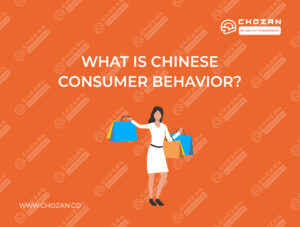One of the most popular buzzwords in China these days is “neijuan” (内卷). Often translated as “involution”, it matches Western ideas of the rat race, burnout and diminishing returns, when putting more into something only results in getting less back.
In China, it’s being used to describe situations where there’s unnecessary and excessive competition in the economy, politics, culture, and education, but is most often used in reference to the country’s 996 – working from 9 am to 9 pm 6 days a week; or 007 – working 24 hours a day, seven days a week – working culture. The topic caused heated discussions in the latter half of 2020 and has become part of the lexicon, especially online.
What is Lying Flat?
It stands to reason. In a quickly developing, highly competitive society like China, people are striving for a better life but also fear missing out. For decades, people have seen their hard work pay off in better living standards, but China’s “involuted generation” is finding that their efforts aren’t paying off in quite the same way.
In reaction to this, an anti-involution movement emerged in 2021. “Tang ping” (躺平), which translates as “lying flat”, matches Western ideas of dropping out of the rat race or being a slacker. On Weibo, the hashtag #What young people can do to prevent involution# (#年轻人如何反内卷#) has attracted 280 million views to date.
Since these two trends have sparked so much discussion, it’s vital for brands to be aware of them when they do marketing in China.
The Origins of the Involution Discussion and the Lying Flat Trend
In September 2020, the concept of involution gained broad attention when pictures of students from Tsinghua University went viral on WeChat Moments. They showed students reading books while riding bikes, books piled high on bunk-beds or even students writing papers while cycling. A student working on a laptop while riding his bike got the nickname “Tsinghua’s Involution King” (清华卷王). This struck a chord with people from all corners of Chinese society who shared similar experiences and generated vibrant debate on social media platforms.
Whether it’s normalized workaholism or the pressure on parents to send children to extracurricular classes and push their academic success from a very early age, the feeling permeates society.
The groups most affected by this trend are the Post-90s and Gen Z, who are transitioning to the workforce and finding it difficult to fit in. There was a record high of more than 9 million fresh graduates in 2021. A scarcity of jobs in the private sector, along with a desire for security and work-life balance means that more young people are seeking civil service jobs.
Research from Aurora Mobile (source in Chinese) also found that more than half of Post-90s and 60% of Post-00s feel they’re not qualified to compete with others and are saying no to the hyper pressured modern workplace.
Those taking the trend to its extremes refuse to get married, buy a property, work overtime, or even have a job at all. They’re not materialistic and want a relaxing, less-is-more lifestyle. The Western equivalent would be those who opt for the van life, digital nomads, gig workers or people who go off the grid.
A Prime Example of Lying Flat
The trend was also exemplified by one of the contestants in the popular talent show Produce Camp 2021. The show is an American Idol/X Factor style show that starts with 90 contestants and ends with an 11-member boy band. Chinese-speaking Russian model Vladislav Ivanov, known as Lelush (利路修), was drafted in as one of the participants after tutoring a few Japanese contestants in Mandarin.
However, he hadn’t expected to be isolated on Hainan Island without an internet connection or access to his mobile phone. He also didn’t seem to be very interested in dancing or singing but leaving voluntarily would have broken his contract. So in the hopes of being voted off, he put in little effort, slept in, asked to leave rehearsals early and stated honestly in his interviews that he wanted to go home. His attitude resonated with the audience and he became a trending topic on Weibo nearly 100 times, making him a traffic magnet that spring.
Screenshot via Weibo © Lelush
Translation of Lelush’s post: “The first rankings have been released. I passed the game! As you all know, I’m not keen to form a boy band. This opportunity should be given to others who can sing and dance better than me with an enthusiasm for the stage. I’ve seen their efforts. I hope you guys can see it as well. Please do not vote for me anymore.”
Some fans saw him as a slacker hero and others voted for him to stay on the show just to annoy him. “If you love me, please don’t support me,” he pleaded again and again. Finally, he got voted off after three months.
Screenshot via Weibo © Lelush
Translation of Lelush’s post: “Thank you everyone for your support. I finally got off work.”
How are Chinese Brands Playing on These Trends?
Brands are taking two general approaches through their marketing campaigns that take these trends into account.
1 Focussing on the Positive
Take Xiao’e Pinpin (小鹅拼拼), a group-buying social e-commerce platform developed by Tencent, for example. The brand took a close look at the complicated mindset of the involuted generation and found that although they shun competition they see as pointless or harsh, they’re not truly unmotivated. They saw that they’re still willing to fight for a brighter future, just in a more relaxed way.
So Xiao’e Pinpin created the slogan “Work a bit hard for happiness” (小拼一下就很开心), encouraging people to stay positive and find their own tempo in a hyper-competitive society. The slogan not only helped soothe the anxieties of youngsters, but also showed concern for them.
Translation of Xiao’e Pinpin’s slogan: “Work a bit hard for happiness.”
The official hashtag for this campaign has been viewed 220 million times on Weibo.
It’s also worth mentioning that in Chinese, Pin (拼) is a pun which can refer to both hard work and group-buying.
2 Taking the Perspective of the Slacker Generation
After Lelush became such a hit, Luckin Coffee took him on as their spokesperson. In ads, Lelush showcases his less is more attitude with his iconic Blue Steel, stony-faced expression and signature phrases like “Is it time to go home yet?”
Screenshot via Bilibili © luckincoffee瑞幸咖啡
Translation of ad: “Yunshi Latte is the best ever.” and “Is it time to go home yet?
Lelush is certainly a spokesperson who echoes not only the lying flat trend but also some events in the brand’s recent past. Chinese netizens made fun of the collaboration, commenting that it was interesting that a company that was “about to go home”, a euphemism for facing bankruptcy, had teamed up with a person who was always keen to go home. This was a reference to the company’s financial fraud scandal in 2020.
As a result, the video got a million plays in one day on Bilibili, a key Chinese video sharing website. There were plenty of compliments in the comments like “Lelush is the best ever”. On Weibo, the campaign’s official hashtag got more than a million views. More than 10 million cups were sold in a single month, setting a new sales record for Luckin.
Conclusion
It’s important to understand the involution trend because it has a huge impact, especially on young people who are a major consumer group. To relieve their anxieties, brands must show they understand and care by either encouraging them to work toward their goals with a positive attitude, or be the coolest slacker ever.
It’s also vital to find connections between trending topics and your products. Simple trend-jacking might only help your brand to get more traffic in the short term. But campaigns that form deep connections, which can come from a unique pun or a quirky spokesman, may yield twice the results with half the effort and make your brand stand out from your competitors. An in-depth understanding of trends, your target customers, and your products is the way to success.
If you want to know more about the most up to date trending topics in China, join our China Marketing Circle for both individual and tailored corporate updates.
For more China market insights, our Q3 Mega Report has comprehensive analysis including key China trends, consumer insights, emerging consumer groups, e-commerce, overviews of key platforms and more. ChoZan is here to help you become a China marketing expert!




